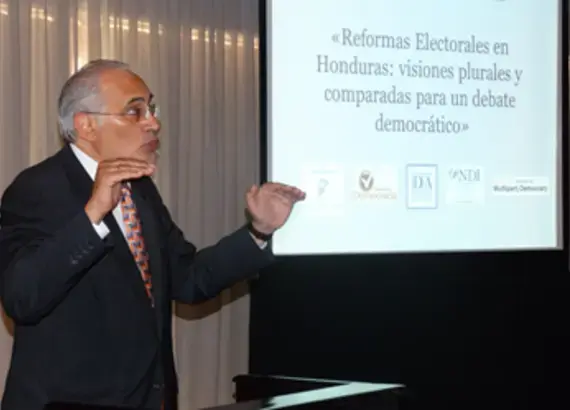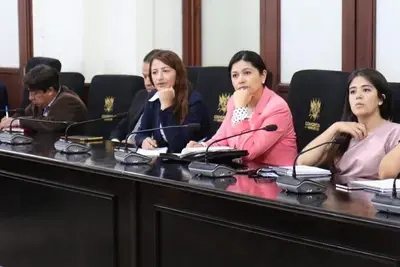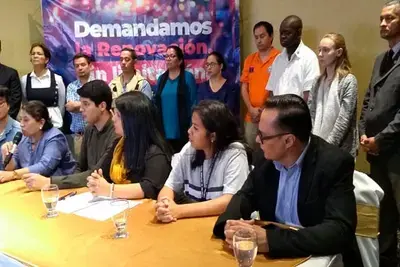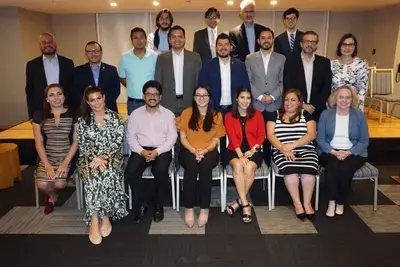
Success Story
International Seminar Prepares Hondurans for Electoral Reform
A record number of Hondurans went to the polls last November to vote in hotly contested presidential, legislative and municipal elections. For the first time in Honduras’ traditionally two-party system, four parties presented viable presidential candidates and won significant percentages of the popular vote, both for the presidency and congressional seats.
Leading up to the election, several political parties and civil society organizations saw a need to strengthen electoral institutions, increase citizen participation and reduce the discretion parties have in decision making processes. As a result, the pre-election period was marked by wide-ranging debates on electoral reform and demands for increased transparency and government responsiveness.
Some of the most pressing issues were highlighted by the Supreme Electoral Tribunal (TSE), the eight presidential candidates and their parties, and the National Registry of Persons (RNP) — the entity which issues identity cards and prepares voter rolls before elections— under an August 2013 pre-election agreement regulating electoral transparency and ethics. These included the distribution of voter identity cards and polling station personnel. Currently, voter identity cards are distributed by political parties — which give cards only to people they know will vote in their favor — and polling places are staffed by political party representatives.
Ahead of the elections some parties also demanded the implementation of electronic voting, changing the makeup of the TSE so that all parties are represented, and switching to uninominal congressional districts in which each district has only one representative. Though some of these issues were raised under the pre-election agreement, it will largely fall to the newly-inaugurated Congress to review and debate the majority of proposed electoral reforms to address the changed political landscape.
To capitalize on the public and political demand for reform and to encourage the government to take action, NDI brought together more than 230 representatives of political parties, electoral authorities, civil society organizations, academia and the international community, along with members of Congress, in Tegucigalpa and San Pedro Sula March 17-20. They discussed the Honduran presidential election, examples of successful electoral reform in Latin America, selection methods for electoral authorities, electoral justice, and various models for congressional elections in uninominal systems. The seminars built upon and added to public discussions on the issue raised during a similar international seminar on electoral reform in March 2013.
“The seminar helped place principle themes of electoral reform in the public debate and gave Honduran society a broader perspective on Latin American experiences,” said Jorge A Reina, director of the RNP.
Presenters included 12 political and academic experts on political and electoral reform, including the former president of Bolivia, Carlos Mesa, the director of the Inter-American Institute of Human Rights (IIDH), Joseph Thompson, and magistrate of the electoral tribunal in the Dominican Republic, José Ángel Aquino.
Several members of the new Congress, national party leaders and electoral magistrates—all of whom will play key roles in the electoral reform process—attended the seminar.
“These seminars help inform Honduran society and policy makers about the dynamics of electoral reform,” said NDI’s country director, Salvador Romero Ballivián. “It’s important to keep these issues in the public debate as Congress begins to set its legislative agenda. The discussions and information shared help to identify what still needs to be done. They also help support realistic efforts for reform by sharing stories about the achievements and limitations that Honduras’ neighbors have experienced in their own reform efforts.”
After the seminar, participants began meeting with key legislators to discuss electoral reform initiatives.
The seminars were sponsored by NDI in collaboration with the Carter Center, the Honduran consortium Let’s Do Democracy (Hagamos Democracia, HD), International IDEA, and the Netherlands Institute for Multiparty Democracy (NIMD).
Read more:
Published April 29, 2014



